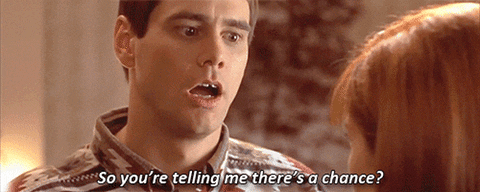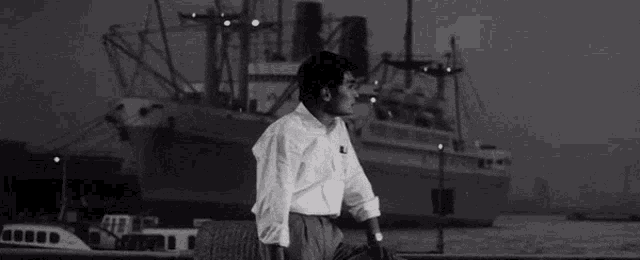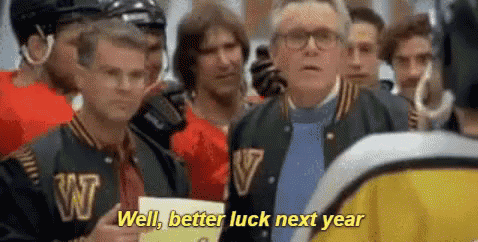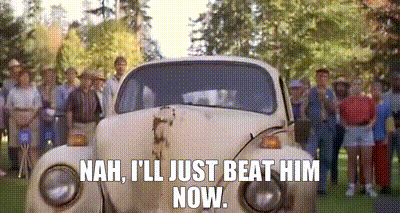Why one of these 12 teams will win the national title
John Gasaway, ESPN Insider
Dec 13, 2023, 09:00 AM ET
As of this week, we may know which 12 Division I men's college basketball teams are still in contention to win the 2024 national championship. Emphasis on "may."
This is because the last 19 national champions have all been ranked in the top 12 in their respective season's Week 6 AP poll. In fact, Week 6 has outperformed polls from any other week over those nearly two decades, in terms of spotting the soon-to-be champion.
Beginning with the 2003-04 season, the average Week 6 ranking of the eventual national champion has been 4.7. No other week throughout the season ranks the eventual winner so highly, not even polls from March (e.g., Week 17, which averages out to 7.3).
Congratulations are therefore in order for the following teams, the top 12 in this season's Week 6 AP poll:
- Arizona
- Kansas
- Purdue
- Houston
- UConn
- Baylor
- Marquette
- Creighton
- North Carolina
- Gonzaga
- Oklahoma
- Tennessee
Consider three factors that may help explain why this particular week's poll has outperformed all other weeks in terms of championship forecasting.
Our learning curve in any season may be more front-loaded than we think
If we start in December 2023 and go back year by year, Week 6's streak of handing out top-12 rankings to eventual champions comes to a crashing halt with Carmelo Anthony and Syracusein 2002-03. The Orange were way down in the "also receiving votes" category in Week 6 that season.Jim Boeheim's champions may have been outliers in terms of their early-season ranking, but they did illustrate half of the dynamic that powers Week 6's strong track record.
Once in a while, a team that is unranked in the preseason -- as Syracuse was in 2002-03, a phenomenon that continued until Week 10 -- will go on to win it all. In such instances Week 6 can also, the Orange notwithstanding, spot champions that were overlooked in the preseason.
For example, Florida followed the example set by the Orange and joined this same club in 2005-06, having been unranked to start that season. So too did UConn in 2011. And while the Huskies managed to secure a spot in the preseason poll a year ago, Dan Hurley's group jumped from an initial No. 25 ranking all the way to No. 2 by Week 6.
All of which merely highlights a common-sense point: After watching the first 10 or so games of any season, the AP's pollsters have learned a good deal about the best teams in the nation.
This knowledge is far from perfect, and countless surprises still await us after Week 6. Nevertheless, the learning curve that lifted UConn from No. 25 to No. 2 in a little more than a month at the beginning of last season reflected a sound evaluative conclusion. The Huskies did indeed turn out to be far stronger than pollsters anticipated before a single game had been played.
A learning curve can also confirm our priors
Then again, if Week 6 benefits from an early-season version of twenty-twenty hindsight, this begs a simple question: Why don't subsequent polls do even better?
Sometimes that's exactly what occurs. Villanovawas, relatively speaking, a lowly No. 12 in Week 6 of the 2015-16 season. The Wildcats went on to hold down the No. 1 ranking for three straight weeks in February before winning the title in April. For its part, 2010 champion Dukebottomed out at No. 10 (Week 12) before peaking at No. 3 in the AP poll the day after Selection Sunday.
It just turns out that these Villanova and Duke teams constitute rather exceptional cases in their own right. The more common pattern has been that, instead of peaking either at Week 6 on the one hand or at the end of the season on the other, soon-to-be national champions sort of do away with peaking altogether.
Take Baylor in 2020-21, ranked No. 2 for 15 weeks and No. 3 twice. The Bears maintained the most statistically consistent ranking of any national champion since Duke was No. 1 in every poll from start to finish in 1991-92.
With some teams the evaluation just stays the same over the course of an entire season. Baylor was expected in the 2020-21 preseason to be one of the two or three best teams in the country. That's exactly what the Bears were.
That team from three years ago will be virtually invisible in any week-to-week comparison of which poll performs "best" at spotting champions. Such a comparison will instead be susceptible to reflecting, in large part, trajectories charted by the most extreme polling outliers.
One program in particular has compiled a remarkable body of work in the area of "polling outliers among national champions."
Week 6 gets an extraordinary lift from UConn's last three titles
In both the 1998-99 and 2003-04 seasons, UConn's rankings looked very much like those that would be posted by a "normal" eventual national champion. The Huskies were ranked in the top 10 for the entirety of both seasons, a distinction carried by 21 of 38 champions since the field expanded to 64 teams in 1985.Titles won by UConn in 2010-11, 2013-14 and 2022-23, however, capped off seasons that displayed much more unusual trajectories as captured by the AP poll. Those three titles were won under three different head coaches, with a gap of no less than nine years between the second and third championships in that run.
Yet somehow each title season followed a strikingly similar sequence:
- Enter the season unranked or, at best, No. 25
- Go undefeated for the first nine to 14 games
- Peak in the AP poll in Week 6
- Suffer six to nine losses in conference play
- Win the national championship
If we elect to remove UConn's three most recent titles from this discussion, the new forecasting superhero since 2004 turns out to be Week 11 (average eventual-champion ranking: 3.9). Last season's Week 11 poll dropped on January 16.
In other words, Week 11 arrives fairly early in the season, too. Whether we're correcting oversights from the preseason or confirming what we already suspected, 20 years of polling suggests there's a good deal to be learned before February.
It's only December, but we may already know more than we think we do about who will cut down the nets in April.





